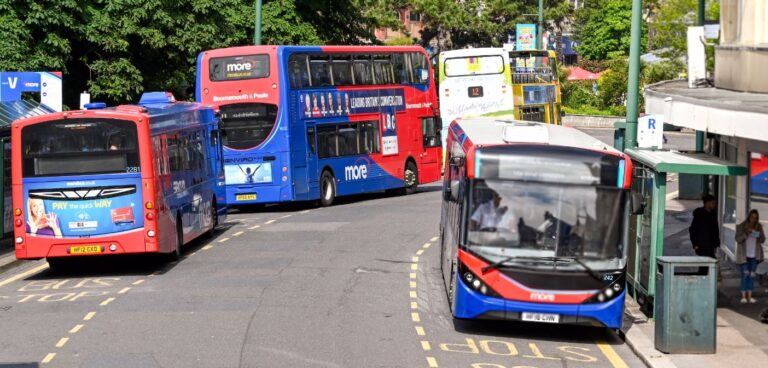Buses across England are set to receive £130m of UK government support to help protect services and routes as pressure mounts on people due to the rising cost of living.
The funding package announced will cover six months from October 2022 to March 2023 and means almost £2bn has been made available to more than 160 bus operators during the Covid-19 pandemic.
UK transport secretary Grant Shapps said: “This funding will ensure millions across the country can continue to use vital bus services, and brings the total we’ve provided to the sector throughout the pandemic to almost £2bn.
“At a time when people are worried about rising costs, it’s more important than ever we save these bus routes for the millions who rely on them for work, school and shopping.”
However, as the funding announcement was made on deadline day for bus companies registering plans for extensive service cuts, Jonathan Bray, director of the Urban Transport Group, said it was “too early to know how many bus services this funding will save”.
“Any reprieve will only be temporary unless there is a long-term revenue funding settlement for bus services that is capable of meeting the aspirations of the national bus strategy for more, cheaper, better and greener bus services,” said Bray.
“We also need to move away from bailing out commercial bus companies, in a way which is difficult to audit, to routing public support for bus services to locally accountable transport authorities who can best ensure that every pound of public support for bus services is spent in the public interest.”
Cllr David Renard, transport spokesperson for the Local Government Association, welcomed the announcement of additional funding to “help keep critical local buses on the road in the short term and stop bus services in some areas slipping back into decline”.
However, he warned the £130m didn’t go far enough to secure the future of bus travel and instead wants the government to do more with the £3bn it is investing in bus services by 2025, including more than £1bn to improve fares, services and infrastructure, and a further £525m for zero-emission buses.
“Instead of emergency funding [the government] should deliver on the commitments made in the National Bus Strategy,” said Renard.
“These include providing the £3bn over three years for Bus Service Improvement Plans, which have been produced by every local transport authority and local bus operators.
“So far, the government has only delivered £1.1bn of this, with more than half of council bids yet to receive funding.
“To avoid recurring funding emergencies and achieve the enormous social, economic, health and environmental benefits of a regular, reliable and affordable bus service in every part of the country, the government should give local authorities the long term and sufficient funds to deliver on their Bus Service Improvement Plans.”





